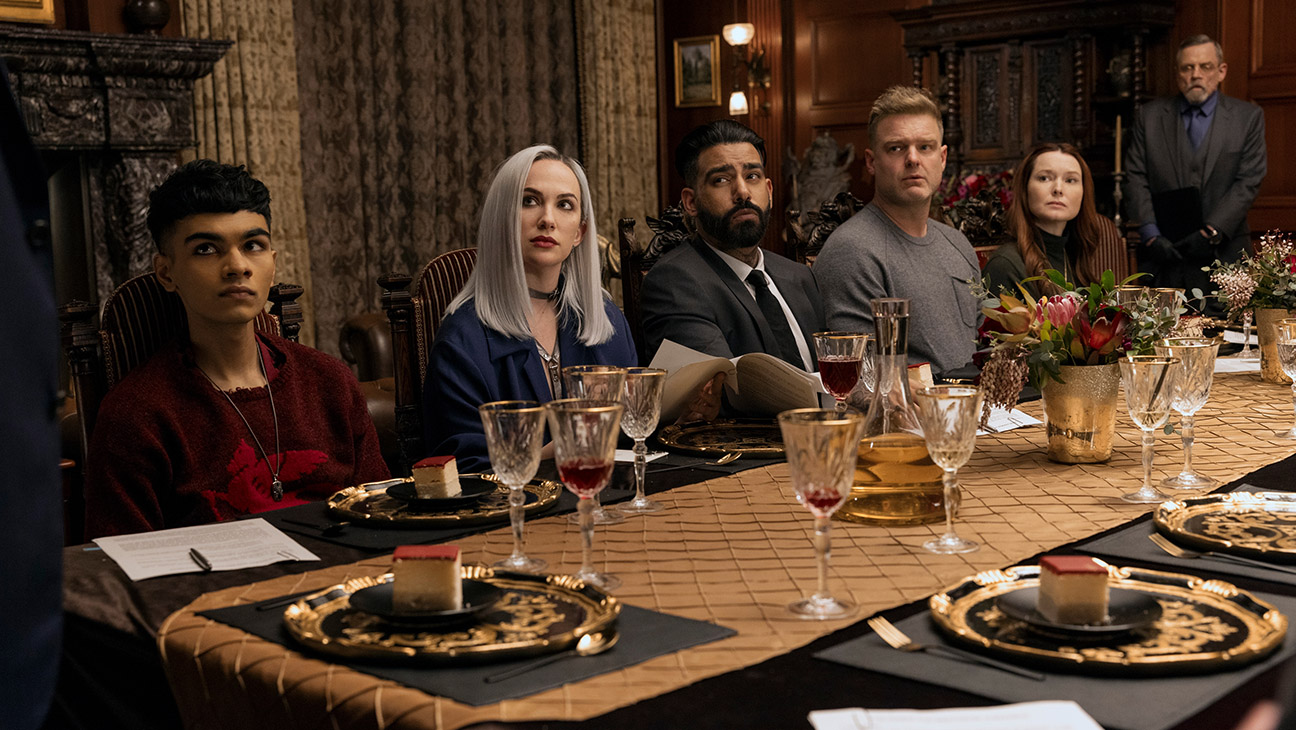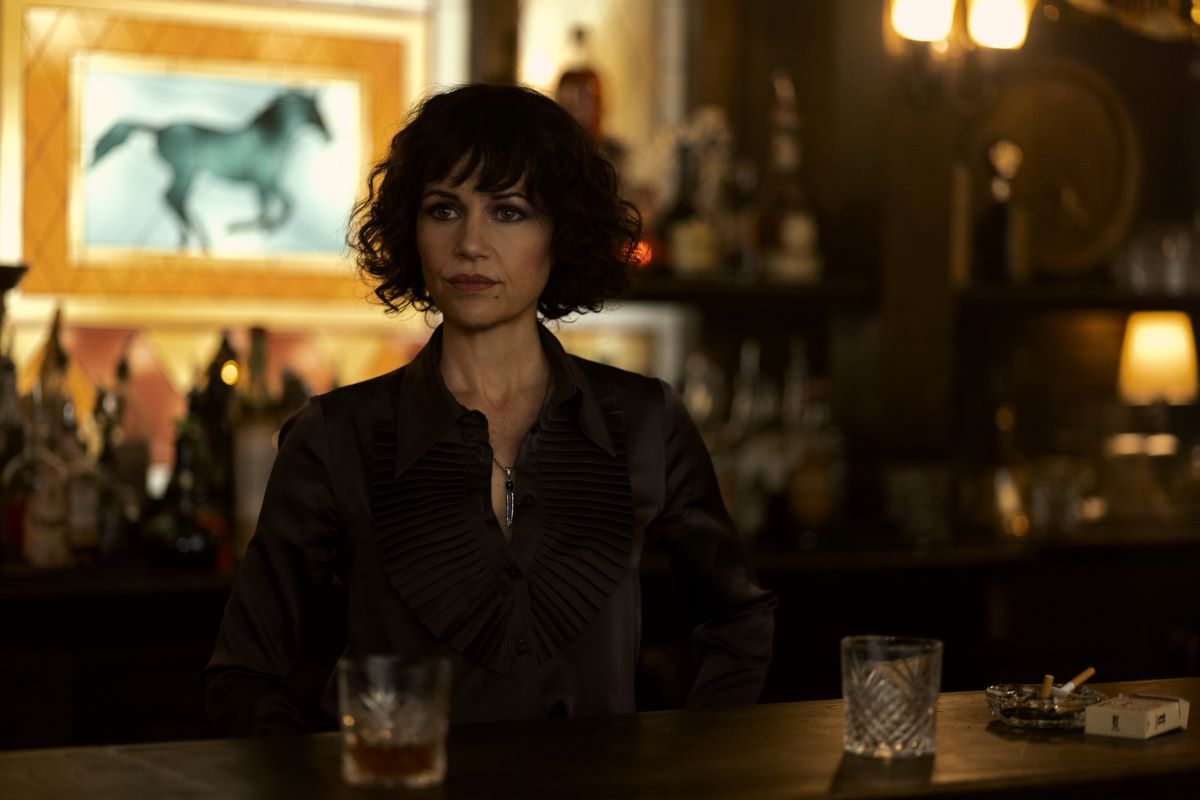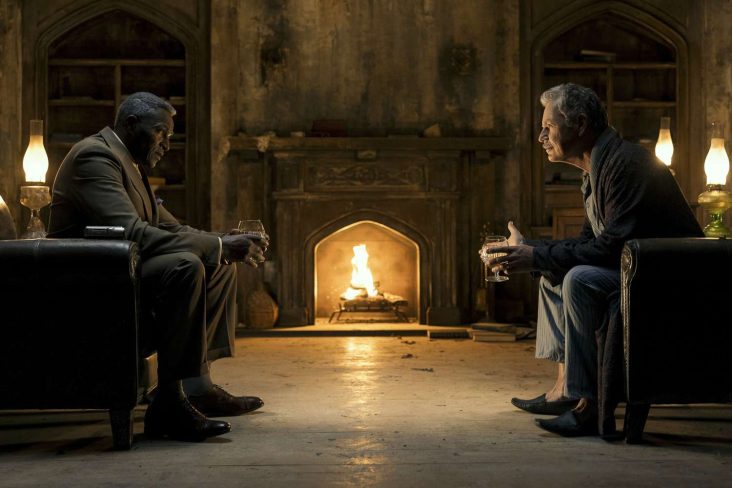Mike Flanagan’s series “The Fall of the House of Usher” is outperforming some of his recent titles on Netflix, possibly because it’s been a while since Edgar Allan Poe was adapted on screen. Flanagan, known for directing “The Haunting of Hill House,” uses Poe’s main tale as a backdrop over eight episodes. However, he masterfully incorporates many of Poe’s stories as nods and tributes.
From Book to Screen
While some references are more obvious than others, only a few titles are adapted in a canonical manner. The series imagines the Usher house as a legacy, with its lineage and family enterprise at the forefront. It kicks off with Roderick Usher (Bruce Greenwood) explaining the tragic demise of his six children within two weeks to Deputy Federal Prosecutor Charles Auguste Dupin (Carl Lumbly). This becomes crucial in the climax of the final episode.
The series is brimming with characters and stories inspired by Poe’s vast works. Flanagan boldly uses direct quotations and unaltered segments from the original texts.

The first episode, for instance, features a funeral where the priest reads passages from four distinct Poe pieces. Poe’s last complete poem, “Annabel Lee,” is recited in a flashback by a young Roderick. Several other poems and stories are woven into the narrative, connecting the series to Poe’s legacy.
Anthology Pieces
Most episode titles derive from Poe’s tales and connect to the Usher descendant they center on. While the titles often give a hint about the episode’s storyline, the actual content might differ from Poe’s original work. Intriguingly, this pattern breaks in the first and last episodes.
Notably, the episode titled “The Red Death’s Mask” presents Prospero Usher hosting a debauched masquerade.
In another episode, a chimpanzee, likely a nod to Elon Musk’s experiments, brutally mutilates a character. Various episodes pay homage to Poe’s classics, like “The Black Cat” and “The Tell-Tale Heart.”
Thoughtful Naming
Mike Flanagan collaborated with Carla Gugino, casting her as Verna, a mysterious entity forcing the Ushers to confront and pay for their sins. Intriguingly, “Verna” is an anagram for “Raven” in English, which ties back to Poe’s iconic poem.

Characters like C. Auguste Dupin, Arthur Pym, and Eliza Usher have connections to Poe’s life and stories.
Each Usher child’s name also traces back to Poe’s fiction or poetry.
Subtle Nods
There are numerous understated references sprinkled throughout. For instance, the fictional drug, Ligodone, gets its name from “Ligeia,” a tale about an opium addict. The death of Madeleine alludes to “Some Words with a Mummy,” while Roderick’s bizarre jester ties back to the 1849 story “Hop Frog.”
Additionally, the series cleverly integrates references to Poe’s contemporaries. For instance, a bar themed entirely after Poe features a framed picture of the writer himself.
In essence, while the adaptation may have its critics, the series is undeniably a comprehensive tribute to the father of horror literature.



